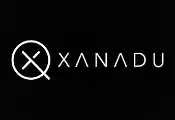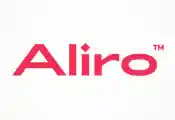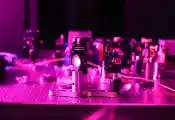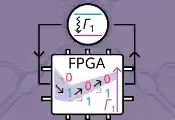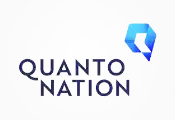Three QSE Researchers Awarded SNSF Swiss-Korean Quantum Grants
November 06, 2025 -- In January 2025, the call for joint research prorjects in the quantum domain was launched to allow researchers in Switzerland to carry out collaborative research projects with partners in South Korea. Ten projects were awarded in total, with the Research Office managing the call at EPFL. Three EPFL researchers received these grants: Hatice Altug (STI), Sascha Feldmann (SB), and Pasquale Scarlino (SB).
Indistinguishable single-photon emitters integrated with multifunctional metasurfaces for photonic quantum computing - Hatice Altug, Bionanophotonic Systems Laboratory
Korean partner:
- Hong-Gyu Park, Seoul National University Department of Physics and Astronomy
Photonic systems are highly promising for quantum computation owing to their low decoherence, operation at higher temperatures, and compatibility with existing photonic integration technologies. However, achieving reliable quantum photonic computing requires the generation of multiple indistinguishable photons and their efficient coupling into on-chip photonic circuits—challenges that remain significant today. This project proposes integrating single-photon emitters (SPEs) with multifunctional metasurfaces to address these limitations. Specifically, it will investigate two types of emitter platforms: defect states in two-dimensional (2D) materials and semiconductor quantum dots, and their integration with engineered metasurfaces designed for operation across a broad spectral range from the visible to the near-infrared. The research will focus on characterizing emitter properties and tailoring metasurface designs to precisely control their emission characteristics. The ultimate objective is to realize on-chip generation of indistinguishable photons and scalable Fock states, paving the way for compact and metasurface-enabled quantum photonic circuits.
Amount: 799,720 CHF
Next-generation electroluminescent quantum light sources based on chemically tailored quantum dots (NextQLED) - Sascha Feldmann, Laboratory for Energy Materials
Korean partners:
- Ho Jin, Ulsan National Institute of Science and Tech Department of Chemistry
- Changsoon Cho, POSTECH, Korean Republic (South Korea)
"NextQLED” will establish the next generation of electroluminescent quantum light sources based on novel chemically tailored semiconductor quantum dots. These materials promise to combine high energy-efficiency, ultra-high brightness and color purity with emerging quantum coherent emission properties, yet would be facile to process from solution, like printing newspaper using ink.
Amount: 615,200 CHF
Superconducting High Kinetic Inductance Platform for Photonic and Phononic Quantum Interfaces (KIPho) - Pasquale Scarlino, Hybrid Quantum Circuits Laboratory
Korean partner:
- Jinwoong Cha, Quantum Technology Institute Quantum Technology Institute Korea Research Institute of Standards and Science
The KIPho project develops a new generation of kinetic inductance–based parametric amplifiers to enable high-fidelity, scalable readout of superconducting qubits. The research focuses on advancing resonant and traveling-wave amplifiers that operate near the quantum limit, with large bandwidth, high dynamic range, and resilience to magnetic fields and elevated temperatures. In collaboration with the Korea Research Institute of Standards and Science (KRISS), these amplifiers will be interfaced with cryogenic photonic and acoustic devices to explore efficient microwave-to-optical signal conversion and all-optical qubit readout.
Amount: 799,996 CHF


